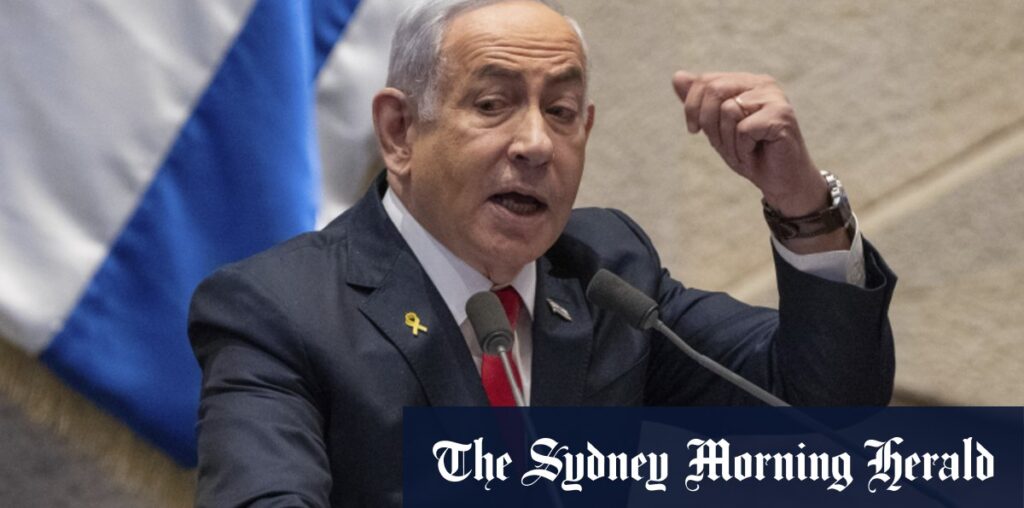Many of Israel’s Western allies, including Australia, the UK, France, Germany and Canada, are ICC signatories, meaning they are obliged by the treaty establishing the court to arrest Netanyahu and Gallant if they visit. But there is nothing the court can do to force such a move.
Loading
Dutch and Canadian leaders, for example, signalled they would respect the warrants. Hungary’s Prime Minister Viktor Orban said the ICC decision was “shameful” and Argentina’s President Javier Milei expressed “profound disagreement”, although both Netanyahu allies stopped short of saying they would ignore the warrants.
The United States, Israel’s main backer, is not an ICC signatory and has rejected the court’s authority.
The decision was met with outrage in Israel, which called it shameful and absurd. The country announced in July it had killed al-Masri, the Hamas military leader also known as Mohammed Deif, which the group has not publicly confirmed.
Hamas welcomed the warrants against the Israelis, and a senior official said it was a first step towards justice.
Nationals senator Bridget McKenzie said Australia should be looking to stand with the United States on the issue, while deputy Liberal leader Sussan Ley described the warrants as troubling.
“I know that Australians will be troubled today to see this targeting of a democratically elected leader who is trying to protect its country from terrorists,” she said.
On the other side of the parliament, Greens senator David Shoebridge said that “the world, including Australia, must ensure these arrest warrants are enforced”.
Science Minister Ed Husic, who has been critical of Israel and is one of the most senior Muslim MPs in parliament, pointed to Wong’s comments saying Australia respected international law. “Obviously, these bodies need to be allowed to conduct their work in accordance with law,” he said.
Pressed at a press conference in Canberra on whether Netanyahu should be arrested, Husic said: “I’m just going to let the law run its course.”
The Zionist Federation of Australia condemned the court’s warrants. “The ICC’s actions set a dangerous precedent for leaders of democracies protecting their citizens from terrorists and rogue states hellbent on their destruction,” it said.
Its chief executive, Alon Cassuto, said they were a shameless attack on Israel. “We urge the Australian government and the international community to reject these baseless attempts to de-legitimise Israel’s leadership,” he said.
The Australian Palestinian Advocacy Network described the court’s decision as a victory and said Australia could not shield war criminals. It welcomed Australia taking a different approach to the United States but said Wong’s statement “sidesteps Australia’s responsibility to uphold international law and hold war criminals accountable”.
“Australia must join other countries such as Canada, Netherlands, France, amongst others, that have confirmed their commitment to enforcing the arrest warrants,” APAN’s president, Nasser Mashni, said.
Loading
The ICC has a limited record of enforcing its warrants. Russian President Vladimir Putin faces one over his forces’ alleged war crimes in Ukraine but Mongolia, which is a member of the court, greeted him with a red carpet during a state visit in September.
The court has had more success in some less prominent cases. This week an al-Qaeda-linked man received a sentence of 10 years in prison for crimes against humanity he committed while heading an extreme Islamist police force in the west African state of Mali.
With AAP, Reuters, Bloomberg
Cut through the noise of federal politics with news, views and expert analysis. Subscribers can sign up to our weekly Inside Politics newsletter.


